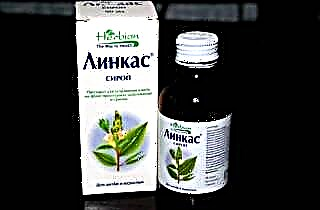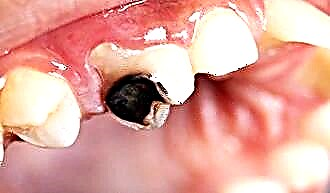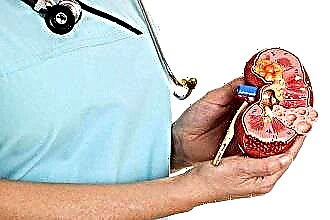The second trimester of gestation for the expectant mother is considered relatively calm - the danger of miscarriage has passed, the main systems of the fetus have already been formed. However, during this period, the woman's body becomes more susceptible to infectious diseases, as its protective functions fall. Getting sick with infectious viral or bacterial ailments is as easy as shelling pears. You can choose suitable cough tablets during pregnancy for the 2nd trimester after consulting your doctor.
Danger of violation
 The second trimester of pregnancy is the time when the placenta is already fully formed and performs its barrier functions. It protects the fetus from the negative effects of external factors, including bacteria or viruses. Also, through it, the future baby receives nutrients and oxygen. However, a cough can pose a serious threat to both the pregnant woman herself and her unborn child. A strong spasm contributes to the contraction of the uterus, which can provoke a miscarriage or premature birth of a baby. The oxygen supply to the fetus is impaired, there is a risk of penetration of pathogens through the placenta. This can cause such negative consequences:
The second trimester of pregnancy is the time when the placenta is already fully formed and performs its barrier functions. It protects the fetus from the negative effects of external factors, including bacteria or viruses. Also, through it, the future baby receives nutrients and oxygen. However, a cough can pose a serious threat to both the pregnant woman herself and her unborn child. A strong spasm contributes to the contraction of the uterus, which can provoke a miscarriage or premature birth of a baby. The oxygen supply to the fetus is impaired, there is a risk of penetration of pathogens through the placenta. This can cause such negative consequences:
- fetoplacental insufficiency (impaired fetal nutrition and oxygen circulation);
- improper formation of bone tissues of the unborn child;
- bleeding from the uterus;
- improper development of the fetal cardiovascular system;
- problems with the formation of the nervous system of the fetus.
Also, cough medicines can have a negative impact on the health of the mother and her unborn child. The list of drugs for pregnant women in the second trimester will be wider than in the first, but most effective drugs are still banned.
Many of them are simply not tested for tolerance during gestation, since research is quite expensive, it is easier for manufacturers to indicate in the instructions that the medicine is prohibited during pregnancy. However, this does not mean that you can independently prescribe dubious pills or potions for yourself, therapy is prescribed only by a doctor.
Features of the choice of treatment
Before prescribing a cough medicine for the expectant mother, the doctor must find out what exactly triggered the violation. An effective and safe therapy is selected depending on the pathogen. Viral and bacterial infections, inflammatory processes in the upper and lower respiratory tract can cause spasm. A pregnant woman can be diagnosed with the following diseases:
 flu, ARVI;
flu, ARVI;- pneumonia;
- bronchitis;
- whooping cough;
- disturbances in the work of ENT organs;
- diseases of the cardiovascular system;
- allergic reactions;
- disturbances in the digestive tract (reflux disease);
- allergic reactions;
- inadequate response to stress.
All of these disorders can provoke a wet or dry cough. The first type is characterized by sputum production. Together with it, pathogens and their waste products are removed from the respiratory tract. Such a spasm is considered safer than dry, and indicates a speedy recovery.
A feature of an unproductive cough is the absence of mucus, when coughing, only air comes out, and bacteria and microbes remain in the focus of infection. This is the most dangerous spasm for pregnant women and their future babies, as it can cause serious complications.
Varieties of drugs
Depending on the type of cough, its frequency, the nature of the sputum and a number of other factors, the attending physician can choose a drug that will help alleviate the condition of the expectant mother, contribute to her quickest recovery and will not harm the fetus.
It is possible to divide the funds that are allowed for use in the second trimester of pregnancy into the following main groups:
- antitussives - inhibit the cough reflex at the level of the central or peripheral nervous system;
 thinning sputum (mucolytic) - helps to reduce the viscosity of the secretion secreted by the respiratory tract and its gentle excretion from the body;
thinning sputum (mucolytic) - helps to reduce the viscosity of the secretion secreted by the respiratory tract and its gentle excretion from the body;- expectorants - improve coughing up by stimulating the nerve endings located in the bronchi, are prescribed only for spasm with the separation of liquid sputum;
- combined - they can combine the functions of drugs from different groups, most often they also have an immunostimulating effect, this helps expectant mothers to cope with diseases faster.
Pills for pregnant women
The second trimester of pregnancy allows the use of effective cough suppressants. At this time, there is no need to fear that the active components of the drugs can affect the fetus.
But it must be borne in mind that there are drugs that can provoke abnormalities in the course of pregnancy in a woman. All pills are prescribed by the doctor only after a detailed examination of the patients, an assessment of the possible risks and benefits of therapy.
Consider what you can use to alleviate the condition during this period of gestation.
- Mukaltin. Effective tablets based on marshmallow root. The plant has powerful expectorant and mucolytic properties, the drug has a combined effect on the body of the expectant mother. It reduces the viscosity of mucus and improves its passage by stimulating the ciliated epithelium. Also, the remedy actively fights inflammation in the lower parts of the respiratory system. It may be indicated for an unproductive spasm or cough that produces very viscous and sticky mucus.
 Libeksin. A powerful antitussive agent, indicated for unproductive spasm without sputum secretion. Eliminates cough by reducing the irritability of the nerve endings of the respiratory tract, acts at the level of the peripheral nervous system. It can be used only with the permission of a doctor, as it has many contraindications and side effects. In addition to suppressing the cough reflex, it expands the lumen in the bronchi, which greatly facilitates breathing.
Libeksin. A powerful antitussive agent, indicated for unproductive spasm without sputum secretion. Eliminates cough by reducing the irritability of the nerve endings of the respiratory tract, acts at the level of the peripheral nervous system. It can be used only with the permission of a doctor, as it has many contraindications and side effects. In addition to suppressing the cough reflex, it expands the lumen in the bronchi, which greatly facilitates breathing.- Ambroxol. An effective agent that reduces the viscosity of phlegm. It can be used from the second trimester with great caution if the benefits to the pregnant woman are higher than the risks to the fetus. The medicine makes the mucus thinner, which promotes its active excretion. It is not combined with antitussives, as it can cause stagnation of secretions in the respiratory tract. It should also be borne in mind that the tablets affect the properties of some antibiotics, increasing their concentration in the secretion secreted by the bronchi.
- Bronchipret. It is produced in the form of syrup and tablets, but pregnant women can only take tablets, since the syrup contains alcohol in its composition. It has an effective mucolytic and expectorant effect, but it is used very carefully, since it is made on the basis of thyme (thyme) extract, which can harm the expectant mother and the fetus. It is prescribed only in rare cases with justified risk.
Syrups for treatment
Syrups are one of the most convenient forms of cough medicine. They provide relief within a few minutes after application, as they are quickly perceived by the body.
Pregnant women in the second trimester can only take certain types of these drugs and only with the permission of the doctor. Let's consider them in more detail.
 Linux. The complex action agent reduces the viscosity of the secretion separated by bronzes, stimulates the activity of the ciliated epithelium, which contributes to the effective and rapid elimination of mucus. You can use the medicine only as directed by your doctor.The official instructions indicate that there is no data on the effect on the fetus, therefore, special care is taken when using the drug.
Linux. The complex action agent reduces the viscosity of the secretion separated by bronzes, stimulates the activity of the ciliated epithelium, which contributes to the effective and rapid elimination of mucus. You can use the medicine only as directed by your doctor.The official instructions indicate that there is no data on the effect on the fetus, therefore, special care is taken when using the drug.- Bronchipret. Also prescribed after assessing all risks and health benefits, as it contains ethanol. Gives a good effect on productive cough, reduces the viscosity of mucus and actively removes it from the body. It is used for productive cough, incompatible with antitussives, the doctor calculates the dosage.
Also, syrups such as "Gedelix", "Stodal", "Doctor Theiss", "Gerbion" are prescribed with caution. All of them contain natural ingredients. However, it should be borne in mind that plant substances during gestation can cause allergic reactions.
Also, artificial colors, sweeteners and other components are often added to drugs of this type, to which the expectant mother may have a personal intolerance.
Medicinal inhalation
In the first trimester, any physiotherapy procedures are prohibited, but in the second trimester, inhalations can be done. This is an effective and safe method of treatment, since the active substances act directly on the mucous membranes, without getting into the bloodstream and without exerting systemic effects on the body. They help to quickly cope with the symptoms of diseases and their pathogens.
It is better for pregnant women to inhale only with a nebulizer - a special device that sprays drugs onto microparticles and automatically controls their delivery. It is not recommended to breathe over the pan, because this way you can burn mucous membranes.
The optimum steam temperature is + 40 ° С, not higher. The procedures are carried out for 10 minutes 3-4 times a day, after inhalation, you cannot drink and eat for half an hour.
To alleviate the condition, the following solutions are suitable:
 sage infusion (a tablespoon of dried raw materials is poured with a glass of boiling water and cooled to the desired temperature);
sage infusion (a tablespoon of dried raw materials is poured with a glass of boiling water and cooled to the desired temperature);- infusion of eucalyptus and garlic (take half a tablespoon of chopped ingredients, pour 1 liter of boiling water and cool to the required temperature);
- soda solution (50 g of baking soda is dissolved in 1 liter of hot boiled water, cooled and the medicinal vapors are inhaled);
- mineral alkaline water (gas from "Borjomi" or "Essentuki" is eroded, heated to the required temperature and vapors are inhaled).
There are also special pharmaceutical solutions for the treatment of cough in pregnant women. Their choice is made by the attending physician after studying all the features of the disease. The following formulations can be added to the nebulizer:
- "Berotek";
- "Atrovent";
- "Lazolvan";
- Ambrobene;
- Sinupret;
- "Malavit";
- Pulmicort and others.
Rinses
The direct effect of medicinal substances on the diseased mucous membrane helps to quickly get rid of the cough. For rinsing, it is best to choose natural ingredients, but even they should be prescribed by the attending physician, so as not to harm the health of the pregnant woman.
Rinsing is carried out with 1 glass of the medicinal mixture after a meal, procedures per day should be 6-8.
Consider what is suitable for expectant mothers for treatment.
 Soda solution. We dilute half a tablespoon of soda in a glass of hot boiled water, cool it to a comfortable temperature and gargle.
Soda solution. We dilute half a tablespoon of soda in a glass of hot boiled water, cool it to a comfortable temperature and gargle.- Pharmacy chamomile. Pour a tablespoon of dried raw materials with a glass of boiling water and wait 20 minutes, filter the finished mixture, heat it up and gargle it.
- Linden flowers. We prepare the infusion in the same way as in the case of the pharmacy chamomile; before use, we warm it to a comfortable temperature.
- Plantain. Dry leaves of lanceolate plantain are also suitable for pregnant women in the second trimester for gargling. We prepare the infusion in the same way as the previous ones, gargle after meals 5-8 times a day.
Drawing conclusions
Expectant mothers may use a lot more cough suppressants in the second trimester than in the first. You can pick up expectorant, mucolytic, antitussive and combination drugs. Only a doctor should prescribe any pharmaceutical and folk remedies, only a specialist can adequately assess all the possible risks of therapy and its effectiveness.
Take care of yourself and treat yourself only with safe drugs.

 flu, ARVI;
flu, ARVI; thinning sputum (mucolytic) - helps to reduce the viscosity of the secretion secreted by the respiratory tract and its gentle excretion from the body;
thinning sputum (mucolytic) - helps to reduce the viscosity of the secretion secreted by the respiratory tract and its gentle excretion from the body; Libeksin. A powerful antitussive agent, indicated for unproductive spasm without sputum secretion. Eliminates cough by reducing the irritability of the nerve endings of the respiratory tract, acts at the level of the peripheral nervous system. It can be used only with the permission of a doctor, as it has many contraindications and side effects. In addition to suppressing the cough reflex, it expands the lumen in the bronchi, which greatly facilitates breathing.
Libeksin. A powerful antitussive agent, indicated for unproductive spasm without sputum secretion. Eliminates cough by reducing the irritability of the nerve endings of the respiratory tract, acts at the level of the peripheral nervous system. It can be used only with the permission of a doctor, as it has many contraindications and side effects. In addition to suppressing the cough reflex, it expands the lumen in the bronchi, which greatly facilitates breathing. Linux. The complex action agent reduces the viscosity of the secretion separated by bronzes, stimulates the activity of the ciliated epithelium, which contributes to the effective and rapid elimination of mucus. You can use the medicine only as directed by your doctor.The official instructions indicate that there is no data on the effect on the fetus, therefore, special care is taken when using the drug.
Linux. The complex action agent reduces the viscosity of the secretion separated by bronzes, stimulates the activity of the ciliated epithelium, which contributes to the effective and rapid elimination of mucus. You can use the medicine only as directed by your doctor.The official instructions indicate that there is no data on the effect on the fetus, therefore, special care is taken when using the drug. sage infusion (a tablespoon of dried raw materials is poured with a glass of boiling water and cooled to the desired temperature);
sage infusion (a tablespoon of dried raw materials is poured with a glass of boiling water and cooled to the desired temperature); Soda solution. We dilute half a tablespoon of soda in a glass of hot boiled water, cool it to a comfortable temperature and gargle.
Soda solution. We dilute half a tablespoon of soda in a glass of hot boiled water, cool it to a comfortable temperature and gargle.

